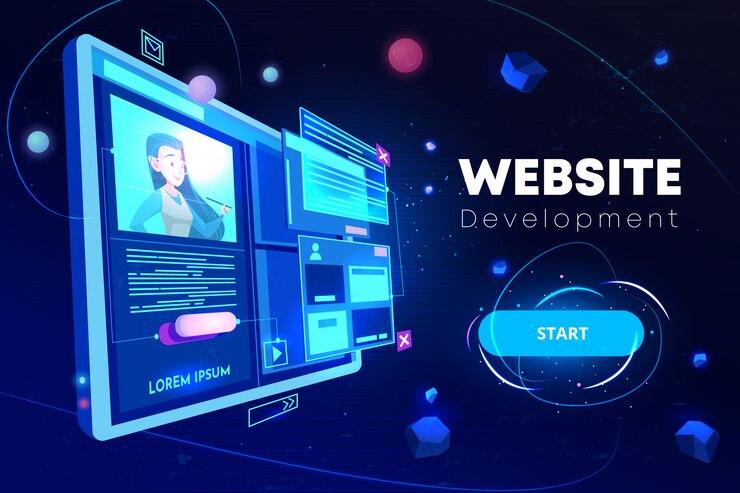Mobile Application Development
Mobile application development is the process of creating software applications specifically designed to run on mobile devices like smartphones and tablets. This involves a combination of programming languages, frameworks, development environments, and design principles. Here are the key aspects and technologies in which we are associated with mobile application development:
Platform Choice:
- iOS: Apple's mobile operating system, primarily used for iPhones and iPads.
- Android: Google's mobile operating system, used by a wide range of mobile device manufacturers.
Programming Languages:
- Objective-C: Another programming language used for iOS app development, gradually being replaced by Swift.
- Kotlin: Google's preferred programming language for Android app development.
- Swift: Apple's preferred programming language for iOS app development.
- Java: Previously a primary language for Android, still widely used for legacy projects.
- Dart: Language used for building apps with the Flutter framework.
Development Frameworks:
- iOS Development:
- SwiftUI: Apple's modern framework for building iOS, macOS, watchOS, and tvOS apps.
- UIKit: A comprehensive framework for building iOS apps, widely used by iOS developers.
- Android Development:
- Android Jetpack: A suite of libraries and tools that help developers write high-quality apps more easily.
- Flutter: An open-source UI software development toolkit by Google for building natively compiled applications for mobile, web, and desktop from a single codebase.
- React Native: A framework by Facebook that allows building cross-platform mobile apps using a single codebase written in JavaScript.
- Xamarin: A Microsoft-owned framework for building cross-platform mobile apps using C# and .NET.
Integrated Development Environments (IDEs):
- Xcode: Apple's official IDE for iOS/macOS app development.
- Android Studio: Google's official IDE for Android app development.
- Visual Studio: An IDE by Microsoft used for Xamarin app development.
- VS Code: A popular, lightweight code editor used for Flutter and React Native development.
User Interface (UI) Design:
- Storyboard (iOS): Interface builder tool in Xcode for designing the app's UI visually.
- Interface Builder (iOS): A graphical editor for designing app interfaces.
- XML Layouts (Android): Using XML for creating layouts and UI components in Android.
Mobile App Prototyping:
- Adobe XD, Sketch, Figma: Prototyping tools to design and visualize app interfaces before development.
Database Management:
- Core Data (iOS): Apple's framework for managing the model layer of an app.
- Realm, SQLite: Databases commonly used in mobile app development for data storage.
API Integration:
- RESTful APIs:Commonly used for communication between mobile apps and servers.
- JSON, XML: Data formats often used in API responses.
Authentication and Authorization:
- OAuth, OAuth2: Standard protocols used for authentication and authorization.
- Firebase Authentication: A service by Google for user authentication in mobile apps.
Mobile App Testing:
- Manual Testing: Testing apps manually for functionality, usability, and design.
- Automated Testing: Using frameworks like Appium, XCTest, Espresso, and UI Automator for automated testing.
App Store Deployment:
- Apple App Store (iOS): Apple's official platform for distributing iOS apps to users.
- Google Play Store (Android): Google's official platform for distributing Android apps to users.
Mobile application development involves a dynamic and iterative process, and keeping up with the latest technologies and best practices is essential to create successful and user-friendly mobile apps. Developers choose the appropriate platforms and frameworks based on project requirements, target audience, and other factors.
Mobile App Development
Custom Web Solutions

Our Commitment to Excellence
Mobile Application development is a constantly evolving field, and staying updated with the latest technologies and trends is essential for creating efficient, secure, and modern web applications. Developers often choose the appropriate technologies based on project requirements, scalability needs, and their expertise.
Coding Excellence

Transforming Ideas into Reality
"Transforming Ideas into Digital Reality: Your Vision, Our Expertise". We offer fast loading, offline capabilities, and app-like experiences on the web. They continue to gain popularity for their ability to engage users effectively.
Elevating Online Excellence

Mobile Development Trends
Mobile development is an ever-evolving field with new trends and technologies emerging regularly. Staying up-to-date with these trends can help developers create modern and efficient web applications. So we keep ourself updated with moderns trends.
Diverse Mobile App Solutions

Cybersecurity and Privacy
We create dynamic, highly responsive Mobile applications which offer smoother user experience by loading content as needed.With increasing concerns about online security and privacy, web developers are implementing robust security measures and adhering to regulations like GDPR.
Our Promise: A Journey to Success
Choosing Entire SEO Group means embarking on a journey toward success, guided by expertise, fueled by creativity, and aligned with your objectives. We're dedicated to achieving meaningful milestones and demonstrating tangible growth, setting the standard for excellence in the digital marketing and SEO landscape. Join us and experience the difference – where your success is our passion.
